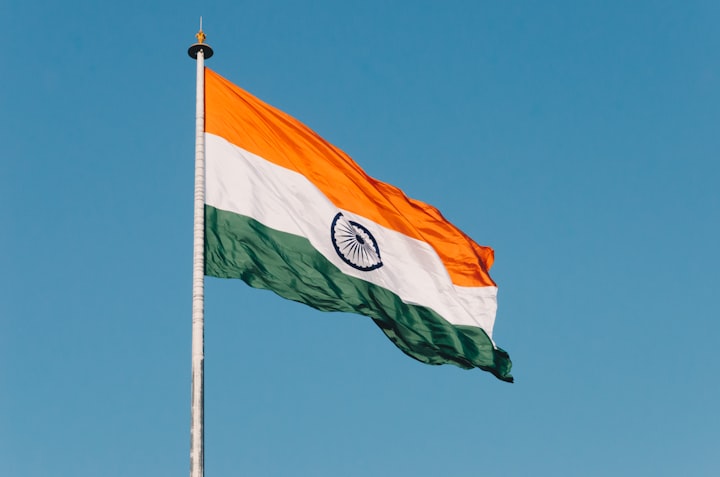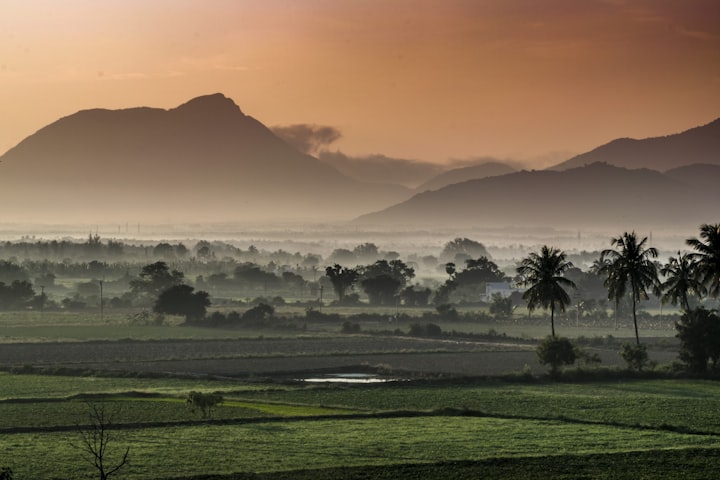
Ancient India (Prehistory - 6th century BCE):
Several notable events occurred during this period in India's ancient history, including the emergence of early civilizations, the evolution of religious practices and beliefs, and the development of numerous arts and sciences.
The Indus Valley Civilization, also known as the Harappan Civilization, was one of the world's earliest urban civilizations, with a peak population of roughly five million people. This civilisation existed in the Indus River Valley, which is now Pakistan and northwest India, and was distinguished by extensive urban planning, complex sanitation systems, and a script that has yet to be translated.
The Vedas served as the cornerstone of Hinduism at the same time as the Vedic Civilization in northern India began to flourish. The religious practices and beliefs of this civilization were defined by the worship of gods like Indra and Agni and the usage of sacrifices to appease them.
In India, the time from the sixth to the fourth century BCE is frequently referred to as the "Axial Age" because of the rise of various important philosophical and religious movements, including Jainism and Buddhism. In the sixth century BCE, the Buddha, also known as Siddhartha Gautama, established Buddhism, which placed a strong emphasis on the quest of enlightenment and the end of suffering. In the Jainism that Mahavira founded, asceticism and nonviolence were valued.
The ancient Indians contributed significantly to mathematics, science, and medicine in addition to religion. The surgeon Sushruta was renowned for his improvements in surgical methods, while the mathematician Aryabhata created a numerical system that included zero.
A lot of the ideas, customs, and traditions that are still prevalent in modern India have their roots in ancient India, which was a time of considerable intellectual and cultural progress.
Classical India (6th century BCE - 1200 CE):
The period known as classical India, which ran from the sixth century BCE to the year 1200 CE, saw a great expansion of Indian culture and civilization as well as important advancements in politics, religion, and the arts.
Under the leadership of Emperor Chandragupta Maurya and his grandson, Emperor Ashoka, the Mauryan Empire grew to become one of the largest and most powerful empires in Indian history during this time. As well as his advocacy of religious tolerance and nonviolence, Ashoka is notable for his part in the spread of Buddhism throughout Asia and India.
The fourth through sixth centuries CE, known as the Gupta Empire, are regarded as the pinnacle of Indian culture. Significant advancements in mathematics, science, literature, and the arts were made during this period, which was characterized by exceptional intellectual and cultural growth. Important literary works like the Mahabharata and the Ramayana were also created during this time, as well as the decimal system and the notion of zero. During the Gupta Empire, important advancements were made in astronomy, medicine, and metallurgy.
Hinduism, Jainism, and Buddhism are just a few of the significant religious and philosophical systems that emerged in India during the classical era. The Hindu writings known as the Upanishads were composed around this time and had a significant impact on Hindu philosophy and religious activities. During this time, numerous significant Buddhist structures, including the Ajanta and Ellora caves, were built. Buddhism also continued to spread outside of India.
Along with these advancements, India's classical era was notable for its creative accomplishments, which included the construction of elaborate sculptures and temple building. For instance, the Khajuraho temples are renowned for their intricate carvings and sculptures that represent a variety of human emotions and experiences.
Overall, India's classical period was a time of tremendous intellectual, cultural, and religious progress, and it is still having an impact on Indian culture and society now thanks to important advancements in science, philosophy, and the arts.
Medieval India (1200 - 1800 CE):
India underwent major political, social, and cultural upheaval throughout the medieval era, which lasted from the 13th to the 18th century CE. throughout this time, several strong empires rose to prominence, Islam spread, and European forces arrived.
The arrival of Islamic control in India, which started with the Delhi Sultanate in the 13th century, was one of the most important developments during this time. Qutb-ud-din Aibak and Alauddin Khilji, two of the sultans of the Delhi Sultanate, established a centralized and strong administration in northern India and brought many elements of Islamic culture and civilisation to the area.
One of the most mighty and significant empires in Indian history was the Mughal Empire, which Babur built in the first decades of the 16th century. The Mughals are renowned for their great contributions to literature, art, and architecture, and their emperors like Akbar are renowned for their tolerance of different religions and support of the humanities.
With the creation of strong trading networks and the expansion of the textile industry during the medieval era, India also saw substantial economic growth and development. For instance, the city of Hampi in the Vijayanagara Empire in southern India rose to prominence as a significant hub of trade and commerce.
The entrance of European nations like the Portuguese, Dutch, French, and British, who established commercial stations and colonies across the region, also contributed to the medieval period in India. Particularly the British East India Company grew in strength and influence, which finally resulted in British colonial domination over India.
Overall, India saw enormous political, social, and cultural upheaval during the medieval era, which was characterized by the rise of strong empires, the spread of Islam, and the entry of European powers. Many of the cultural, political, and economic realities of modern India were influenced by these processes, which also created the groundwork for the modern Indian state.
Modern India (1800 CE - present):
Beginning in the early 19th century with the establishment of British colonial control, India's modern era has seen important political, social, and economic advancements.
India witnessed enormous changes during the British colonial era, including the establishment of contemporary institutions and infrastructure including railroads, telegraphs, and legal and administrative systems. But colonial control was also marked by economic exploitation and subjection of India, which brought about famines and other difficulties.
Early in the 20th century, the Indian independence movement was founded and played a significant role in the country's fight for freedom from British colonial control. It was led by individuals like Mahatma Gandhi, Jawaharlal Nehru, and Subhas Chandra Bose. After gaining its independence in 1947, India was split into Pakistan and India, with the division being accompanied by bloody religious wars.
India saw enormous political and economic transformations in the years that followed its independence. India chose a democratic form of governance with a multi-party system and universal suffrage. India became one of the economies in the world with the quickest growth after economic reforms were implemented in the 1990s, which promoted economic liberalization and growth.
Significant social and cultural advancements in India during the modern era include the growth of women's rights, the promotion of education, and the preservation of India's rich cultural history. India has advanced significantly in a number of fields, including sports, science, and technology.
But India also has to deal with serious issues like poverty, corruption, and racial and religious tensions. Several significant terrorist acts, such the 2008 Mumbai attacks and the 2019 Pulwama attack, have also had an impact on the nation recently.
India's transformation from a British colony to a contemporary democratic nation with a rapidly expanding economy and a diversified and dynamic society has been distinguished overall by substantial political, social, and economic advancements.






Comments
There are no comments for this story
Be the first to respond and start the conversation.